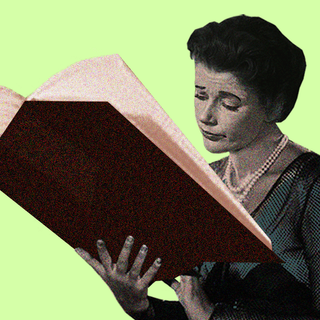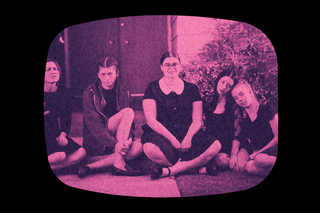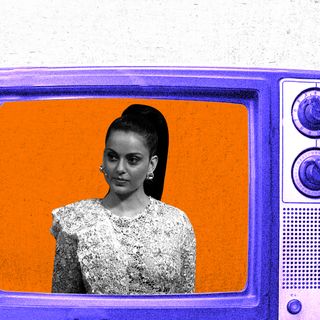
The Season 2 Finale of ‘Euphoria’ Is a Tale of Innocence Lost
Unlike the easy-breezy John Hughes-style coming-of-age dramas, ‘Euphoria’ subverts the trope where children come into maturity at a great cost.

This article contains spoilers for season 2, episode 8.
“No no let us play, for it is yet day // And we cannot go to sleep.”
Thus goes “The Nurse’s Song” in William Blake’s Songs of Innocence and Experience. It would be a controversial claim to make to say that the kids on Euphoria are innocent. But if all the episodes leading up to this one represented their hedonistic play, in season two’s finale, they finally head home to go to sleep when the light passes.
Amid all the adult themes, many a time, we lose sight of the fact that these are still teenagers growing up in an adult world. Often, they are forced to grow up too fast. This is especially true for the girls. Much has been said and written about the show’s often unrealistic portrayal of high school life, but the season two finale was perhaps the first truly honest portrayals of what it took for everyone to grow up.
Everyone has finally come of age. But unlike the easy-breezy John Hughes-style narrative of coming of age dramas, Euphoria subverts the trope to show how children tip over into maturity and understanding at a great cost.
TV Tropes defines the “innocence lost” trope like this: “A plot where an innocent person, usually a kid, is exposed to true evil, or the uglier and darker side of the world, for the first time… However the story pans out, the character’s innocence is gone forever by the end, with much regret by all involved.”
In Euphoria, the season two finale is not the first time anyone is exposed to the dark side of the world. It is, however, the first time they come out on the other side to discover that there is, after all, anotherside, which is also the place of no return. As Rue says in her eulogy speech for her father, “This is the part where the character never recovers.”
The loss of innocence trope is epitomized in a disturbing novel by William Golding, The Lord of the Flies. In it, a group of boys stranded on an island slowly begin to turn on one another, losing their childlike naivete and acquiring, instead, a sense of self-preservation and the cognitive means to do what it takes to get there.
Euphoria is probably what Lord of the Flies would’ve been like if it was set in a high school a few generations later, and in the age of the Internet. Nobody kills each other, but they do harm one another irreparably. When parents have failed them and teachers are nowhere in sight; outside the hold of authority, these are children subject to a kind of lawlessness that is primal — one where loyalties are broken, secrets spilled, and darker instincts converge into the most vulnerable of people. At the end of it all, they will never be the same again.
It’s still unclear what year of high school any of these characters are in. But they’ve finally emerged from the whirlpool of adolescence to learn that one does come out of it — that this too shall, indeed, pass. But it doesn’t necessarily mean they’re all whole from it.
Related on The Swaddle:
In ‘Euphoria,’ Lexi Is a Bad Friend Who Makes Good Art
The loss of innocence is best represented in Ashtray’s tragic death. He goes down protecting Fezco — and his last contact with his brother and found family is through a wordless gaze that says everything without saying anything at all. Ash is the youngest character on Euphoria who arguably didn’t have the luxury of innocence. And yet, his death represents the death of even the potential for innocence. His final acts were childlike in their impulsivity, their breathless loyalty, and magnitude without a second’s thought.
Fez’s world, for one, will no longer be the same. It’s particularly tragic, given that he and Ash never had access to much innocence in the first place, and have grown up knowing only violence. But amid the violence is loyalty and love for one another — it provides a semblance of protection from the world. Moreover, just when Fez was beginning to get in touch with the hopeful, joyous part of himself with Lexi, wistfully imagining a future with her, he is beset by unspeakable tragedy because real life interrupts. As it always does.
Real-life also interrupts Lexi’s play, which continues on from the previous episode. Cassie, who has had it up to here with her public humiliation, storms up to the stage to confront her sister’s motives in front of everybody, making light of her trauma and experience. It is a particularly meta moment, as Cassie is forced to confront a near mirror-image of herself — a duplicate who, when seen from an external gaze, she isn’t able to tolerate. Cassie resorts to blows with “Hallie” and in a sense, she’s destroying the version of her that was constructed entirely through an external gaze, trying to reach into the core of who she is. Cassie’s entire arc comes galloping to a head as she, increasingly maddened by being unable to access her own self-identity, turns increasingly unstable.
Maddy, who is grappling with her own betrayal and loneliness, soon joins the fray. After a cathartic, physical release of anger, pain, humiliation, and sorrow, Cassie and Maddy find themselves in the girls’ bathroom — that space of community and shared experience of femininity at Euphoria high, but also, in real life. They finally share a moment of quiet, having expressed everything they needed to and coming out on the other side.
It is reminiscent of Kim Addonizio’s poem that has ascended to the status of a modern ode to womanhood. If you “…ripped out the stitches in your heart // because why not if you think nothing &// no one can / listen I love you joy is coming.”
When Rue and Lexi sit together, baring their hearts and finally being honest about their respective pain, they reconnect on the other side. Jules and Rue are reconciled to the fact that their love — once soaring and truly euphoric — is over. Rue and Eliot leave the possibility of friendship open, with the awareness that impulse is no longer the driving force of their lives. And Nate figuratively kills his father, finally cutting himself loose from the fiction of a functional family and a healthy father-son relationship. In all of these situations, innocence is lost irretrievably. Characters have come of age. Their fantasies and drama have slid into the past. But along the way, they learned lessons for a lifetime.
Joy is coming — not in the ways they expect, not in the ways they’ve known thus far. If Euphoria taught us anything, it’s that the adolescent highs are ephemeral, and that love is a constant even if it ends. Zendaya brings the season to a close with a rendition of “I’m Tired” from episode four, changed now to “I’m Trying.” And trying they all are — to be good people, if nothing else, which is a place they’ve arrived at after too much strife and turmoil. The characters we’ve seen grow up over two seasons will perhaps, finally, know stability — and, eventually, real joy.
Rohitha Naraharisetty is a Senior Associate Editor at The Swaddle. She writes about the intersection of gender, caste, social movements, and pop culture. She can be found on Instagram at @rohitha_97 or on Twitter at @romimacaronii.
Related


Kangana Ranaut’s New Reality Show Marks an Insidious Shift in the TV Genre
